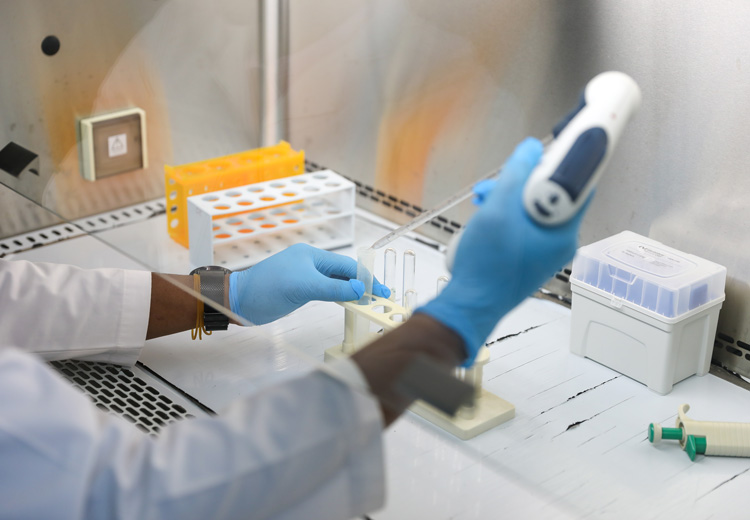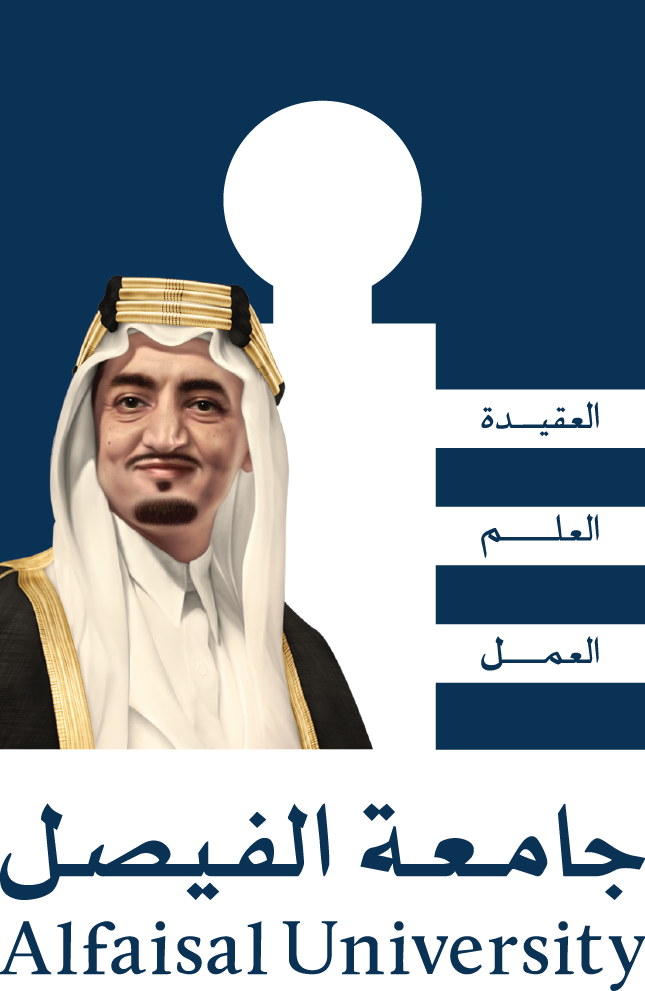Fostering innovation to promote local and global health

Sponsored by

Sponsored by

The Health Innovation Initiative brings researchers, industry and government together to address pressing health concerns
In 2021, Alfaisal University launched the Health Innovation Initiative (Alfa-HI) to facilitate the expertise, technology and partnerships needed to realise impactful health innovations and solutions to real-world problems.
“In light of the ongoing Saudi Health Sector Transformation Programme and the global demand for practical health solutions, Alfa-HI is an attempt to deliver the innovation needed for Alfaisal University and Saudi Arabia to become key contributors to health and well-being technologies,” says Qais Dirar, the director of Alfa-HI, who recently returned to Saudi Arabia after completing his postgraduate studies in the United States.
“We are keen to bridge the communication gap between governments, institutes, colleges and fields to develop the interdisciplinary ecosystem needed to realise innovative solutions.”
This drive is in keeping with the country’s Vision 2030. Unveiled in 2016, the strategy charts a path for Saudi Arabia to diversify its economy and reinvigorate social development. The health sector is a fundamental pillar of this strategy.
Historically, the majority of the Global South countries have imported health technologies and treatment from the West. “The imported technologies are not usually tailored to our population’s needs,” Dirar says. “Today, we have the facilities and expertise needed to undertake health innovation within the country.”
The Alfa-HI is a key contributor to growth and innovation in the healthcare industry and aims to revolutionise current approaches to health problems through evidence-based strategies and innovative technologies. The initiative acts as a liaison between the university’s partners and colleges to support scientists in developing research ideas into market-ready solutions.
Discussions with numerous health stakeholders in the country informed the initiative’s decision to focus on multiple areas, including personalised medicine, molecular diagnostics, biosensors, vaccine development, nanomedicines, biomedical engineering and digital health.
Diverse knowledge
When it comes to promoting innovation and delivering a product, a diverse input of knowledge is needed. The Alfa-HI brings together researchers and experts with a wide range of experiences to contribute to an interdisciplinary approach to problem-solving.
“You need the support of experts from different sectors – such as medicine, science, engineering, business and law – to work together to address the research priorities of Saudi Arabia,” Dirar says. “The Alfaisal University setting and curriculums provide the perfect ecosystem for a synergistic collaboration between colleges and disciplines.”
The Alfa-HI also benefits from the university’s in-house consultants and expertise to support researchers in establishing patents, developing feasibility studies, creating prototypes and communicating with manufacturers for commercialisation, which allows scientists to formulate a path for their ideas.
Alfaisal University is strategically placed in proximity to one of the university’s oldest partners, King Faisal Specialist Hospital and Research Centre, which is the top tertiary care centre in the Middle East. It has a hospital capacity of 1,549 beds, along with 14,650 members of staff, which includes medical, research, nursing, administrative and technical staff.
The university is also located next to Aldara Hospital, which has an innovative focus on wellness and a commitment to providing care with a human touch alongside medical excellence across disciplines.
Another of Alfaisal University’s partners is the Specialised Medical Center, which aims to build an honest and ethical medical services network that provides quality health care with an evidence-based approach. Moreover, Alfaisal University is situated next to the Ministry of Education, the Ministry of Defense and the Ministry of Interior Affairs, providing convenient access to facilities and partners that influence national security and prosperity.
The Alfa-HI is an active contributor to health innovation events in Saudi Arabia through strategic partnerships and the recruitment of experts in numerous fields.
“We’re partnering with the Saudi Ministry of Health, the Public Health Authority and the National Institute of Health to understand their research priorities and work with experts in those areas,” Dirar says.
By responding to the priorities identified by government agencies and stakeholders, the Alfa-HI ensures it can promote the country’s health needs and produce vital innovations to meet the population’s demands.
A common issue that comes up in multi-stakeholder discussions is the need to train people to become health innovators and entrepreneurs, as opposed to merely graduating academics or practising physicians. To that end, the Alfa-HI is working closely with key national and international partners in developing research-focused graduate programmes, postgraduate courses and workshops.
These initiatives are guided by the priorities set by national government programmes and ministries to explore new aspects of health innovation such as modern technologies in medicine, digital health and artificial intelligence techniques to improve diagnostics and care delivery.
Alfaisal University’s national educational partners include the King Faisal Specialist Hospital and Research Centre, King Abdullah University for Science and Technology and the King Abdulaziz City for Science and Technology. Alfa-HI also has a memorandum of understanding with Abdul Latif Jameel Health and Siemens Healthineers to drive innovative change at Alfaisal University and Saudi Arabia.
The Alfa-HI team works closely with these partners to develop business accelerators, incubators and think tanks that promote health innovation in Saudi Arabia and the wider region. “At Alfaisal, we are not interested in replicating other institutes. Instead, we are very much geared by the national needs and the importance of developing programmes tailored to our community’s needs,” Dirar says.
Dirar’s long-term vision is for the Alfa-HI to become an entity that is still linked to the university but can operate independently. “We shall continue working with health experts and partners towards fulfilling the goals of Vision 2030 and the transformation of Saudi healthcare to become a model for others,” Dirar says.
Find out more about the Health Innovation Initiative.